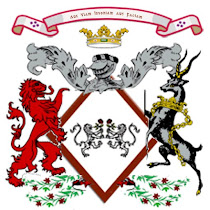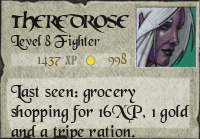For Mme. Nicholas
For those who read the Proceedings of the Royal Society, you will know of Lady Kate Nicholas' interest in historical...er...future....events which take place in Russia. This is my gift to her today on the historical anniversary of the October Revolution. A brief review of the events leading to this extraordinarily significant event, and some information on the Revolution itself.
Nicholas II
As the year 1917 began, the atmosphere in Russia was ripe for revolution and change. Peasant villagers often migrated between agrarian and industrial work environments, and many relocated entirely, creating an expanding urban labor force. A middle class of white-collar employees, was on the rise. Even the nobles had to find new ways to subsist in this changing economy, and contemporaries spoke of new classes forming (proletarians and capitalists, for example).
The boundaries between the classes was shifting and blurring continuously. The culture was becoming much more commercialized and was creating new objects of desire. The growth of political consciousness, the impact of revolutionary ideas, and the weak and inefficient system of government, which had been debilitated further by its participation in World War I, seemed to do nothing to convince Nicholas II that any reform was necessary.
The populace felt Nicholas was out of touch with the needs and aspirations of the Russian people, the vast majority of whom were victims of the wretched socio-economic conditions which prevailed. There were few opportunities for the advancement of most in society.
Politically, many Russians, as well as non-Russian subjects of the crown, had reason to be dissatisfied with the existing autocratic system. Nicholas II was a deeply conservative ruler. His criteria of virtue—orderliness, family, and duty—were viewed as both personal ideals for a moral individual and rules for society and politics. Individuals and society alike were expected to show self-restraint, devotion to community and hierarchy, and a spirit of duty to country and tradition. Religious faith helped bind all this together: as a source of comfort and reassurance in the face of contradictory conditions, as a source of insight into the divine will, as a source of state power and authority.
The February Revolution, which ultimately ended with the abdication of Nicholas II in early March, broke out without definite leadership and formal plans, which may be seen as indicative of the fact that the Russian people had had quite enough of the existing system. After this event, leadership moved gradually to Alexander Kerensky of the Social Revolutionary Party.
Kerensky faced several great challenges: other political groups' challenges, heavy military losses on the front lines, defecting soldiers, discontent with the ongoing war, enormous shortages of food and supplies.

The Bolshevik Party led by Vladamir Lenin was growing in strength despite some earlier defeats and missteps. Lenin led his leftist revolutionaries in the October Revolution. The October Revolution ended the phase of the revolution instigated in February, replacing Russia's short-lived provisional parliamentary government with government by Soviets.
Soviet membership was initially freely elected, but many members of the Socialist-Revolutionary Party, anarchists, and other leftists opposed the Bolsheviks through the soviets. When it became clear that the Bolsheviks had little support outside of the industrialized areas of St. Petersburg and Moscow, they barred non-Bolsheviks from membership in the soviets. Other socialists revolted and called for "a third revolution." The most notable instances were the Tambov rebellion, 1919–1921, and the Kronstadt rebellion in March 1921. These movements, which made a wide range of demands and lacked effective coordination, were eventually defeated along with the White Army during the Civil War.





7 comments:
Excellent post, Lady B. A little known fact is that the German High Command, during the height of the war, infiltrated V. Lenin into Russia through the use of a famous "sealed coach" that transported Lenin from Switzerland, through wartime Germany, up to the Russian border. Lenin, as history shows us, made use of the opportunity the OKW presented him and in doing so did exactly what was expected of him-- fomented revolution from within. One wonders if the German high command ever despaired of just how succesful their plan was, in later years.
Of course, one man doesn't make a revolution, but an argument could be made for one man shaping the future of the Bolsehvik party, which Lenin *certainly* did. By taking such a drastically hard line with the Mensheviks and other Socialist movements, he established the primacy of the Bolsheviks and initiating the downfall of the burgeoning Anarchist/Peasant Collective movements of Mahkno and others non-Soviet collective poltical movements. One wonders, in retrospect, what the world might have been like had Lenin had a deadly visitor in his sealed coach during that train ride.
Yrs,
H. O'Toole
Ah - you enlighten me further, Mr. O'Toole. Thank you very much. I must admit that during my trip to Finland this year, I became extremely interested in the Russian conflicts of this time and earlier. There was much to learn in the museums as we toured given the Grand Duchy status of Finland at the time.
Your idea at the end is thought provoking and one really must wonder what the world would have been like indeed.
Eva
Recently, my interest in the Russian Civil War was piqued by a wargame called Triump of Chaos:
http://www.clashofarms.com/chaos.html
Very good simulation of the chaos with lots of history.
Somme
Mr Somme
Thank you very much for the link to the Triumph of Caos site. Even for me - a non-wargamer, it looks very interesting.
*ponders whether this may be a new hobby*
And so now, we can look for all the endings that might have been.
Thanks.
Eva
I thoroughly enjoyed not only your posting, but also your thoughtfulness ... though I am certain that this is the first 'gift of a story about the революция' I have ever received :)
I am sure that we all have our favourite romanticised places and periods; SL serves to bring out those, uncoloured by reality. The analogy would be to fans of the antebellum American South (of which you are one, n'est-ce pas?), whose culture was gone with the winds of war.
I prefer, then, to recall the time before the dissolution of the country into chaos, when everything, at least through the lens of fondness, is fixed in a scene from Tolstoy (and not one of those depressing peasant-farmer diatribe chapters, either), all candy-cane spires, hoop-skirts and troikas, decadent Caspian caviar and blini and expatriate French chefs and tutors.
But as the saying goes, we see through a glass darkly. There was nothing romantic about the end of the Tsarist era; plenty of wrong was looking for some correction. Nicholas' policies were arguably not what Russia needed, nor his orthodox (little 'o') views towards the future. The life and rule of the last Tsar are a Byzantine tragedy, which the country shared.
Under the Bolshevik yoke, the peasants were still peasants, and the vacuum behind the nobility was filled with equally-decadent commissars. Boyars into apparatchiks. A zero-sum gain, save for the blood of the innocents; gospodi pomilui.
The historical gamers above have likely asked themselves "what if the high-water mark of the Confederacy wasn't in Gettysburg, but rather, Washington?" I too have informally wondered what would have happened if: if the Whites had prevailed over the Reds; if the nobility in exile had accomplished a contre-coup; if another movement had prevailed (as Mr OToole alludes to); if, if, if.
I shan't trouble myself with those trains of thought, though. I shall happily preserve, as if in Baltic amber, a never-was else-when Russia, in which no revolutsiya is needed, where the French-cuisine dinner parties preceed ball upon ball, the sleighs run in pristine snow, and the bells ring under the golden domes. The bells, and the incense, unto ages of ages ...
Lady Kate -
The poetry and imagery of your response is incredible, and your points are all very well taken.
I am glad if my post was the catalyst for these trains of thought, and that you seemed to enjoy riding them along.
Das Vidanya!
if the nobility in exile had accomplished a contre-coup; if another movement had prevailed (as Mr OToole alludes to); if, if, if.
'If "ifs and buts were candy and nuts, eveyday would be Christmas' as the great sage, Don Meredith, was fond of saying.
What-if exercises may seem, on the face of it, to be useless from most perspectives. After all, the revolution ended the way it did, Lenin DID seize control of the Revolutionary movement, other parties WERE proscribed, and (with the defeat in Poland and ravages of War Communism staring them in the face), Communism in Russia became what it became for the next several decades. Certainly "what-ifs" rarely rise above the level of a mind game. I admit to being tantalized by them myself.
However, in this instance so much of the result derives from the life or death of one singular individual, it is hard to resist.
I agree with you, Miss Nicholas, there were many wrongs in need of righting in Tsarist Russia, and Nicholas was, alas, not the fellow up to the job. Land equity issues and economic imbalances had Russia had been seething for decades. Nicholas wasn't even the first Tsar to die violently-- his grandfather and great-great grandfather also died from an assassins bullet. So perhaps the collapse of the Romanovs was an express train that had left the station by the time of the October Revolution. I like to think that maybe a better Russia than what the Russians eventually got might have at least possible...
Post a Comment